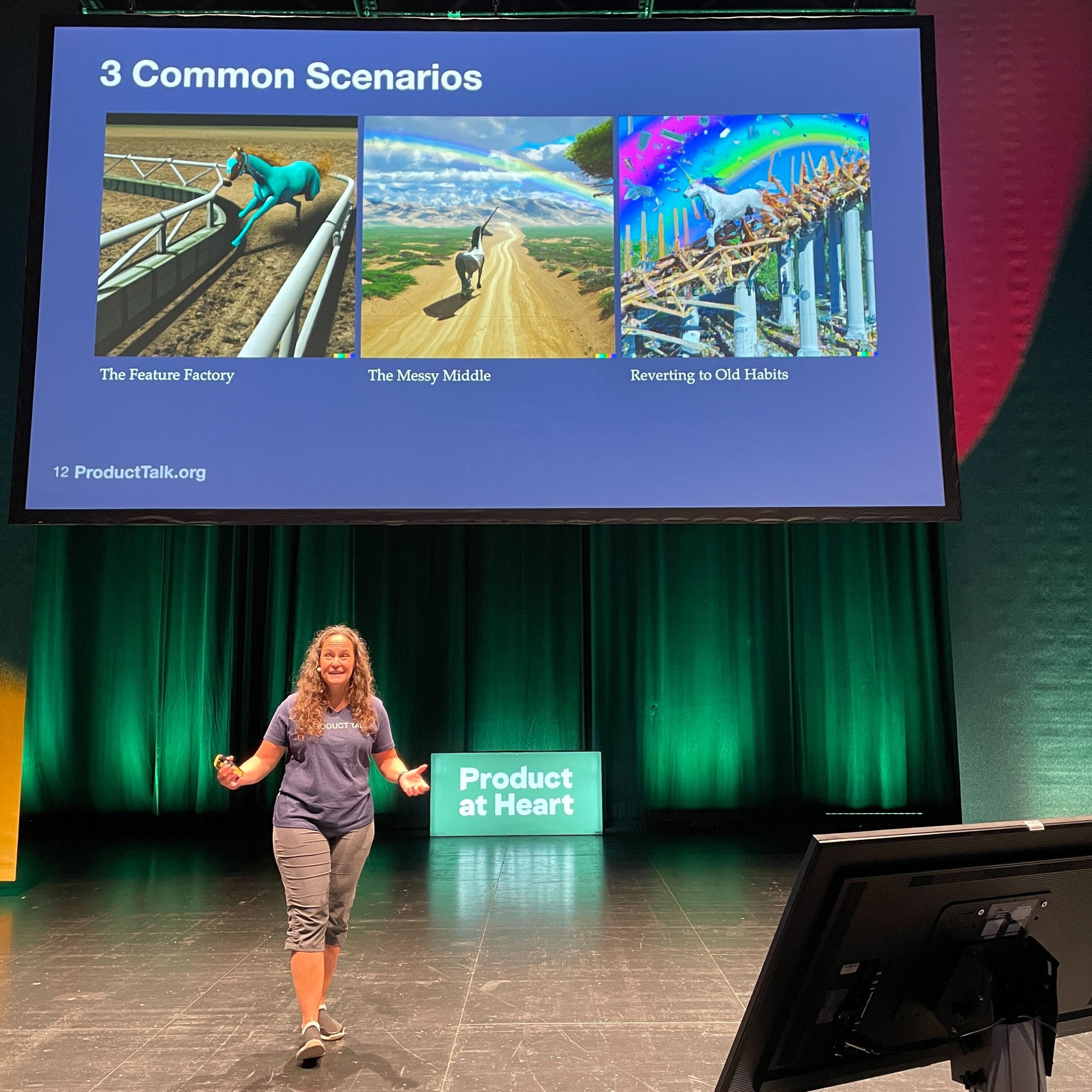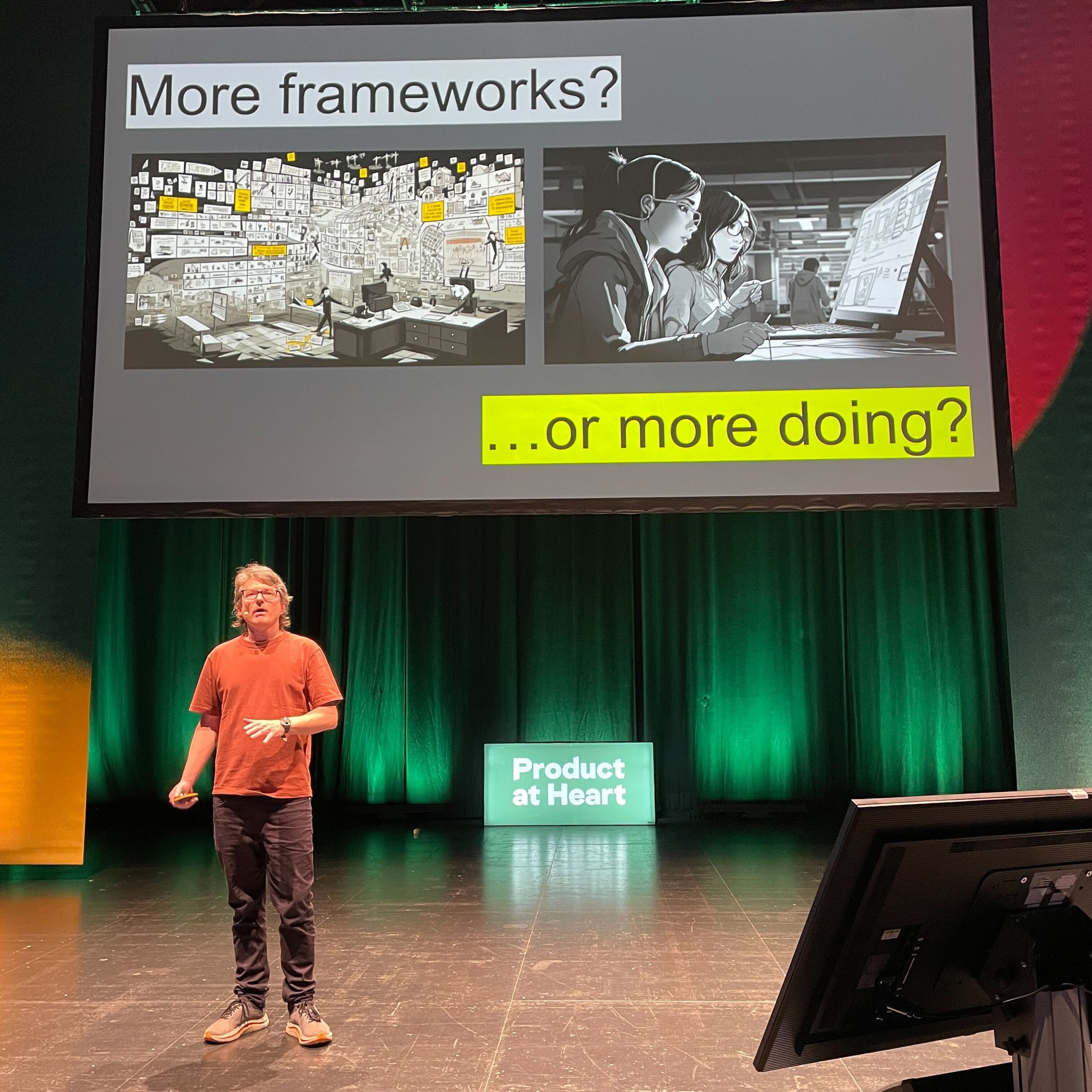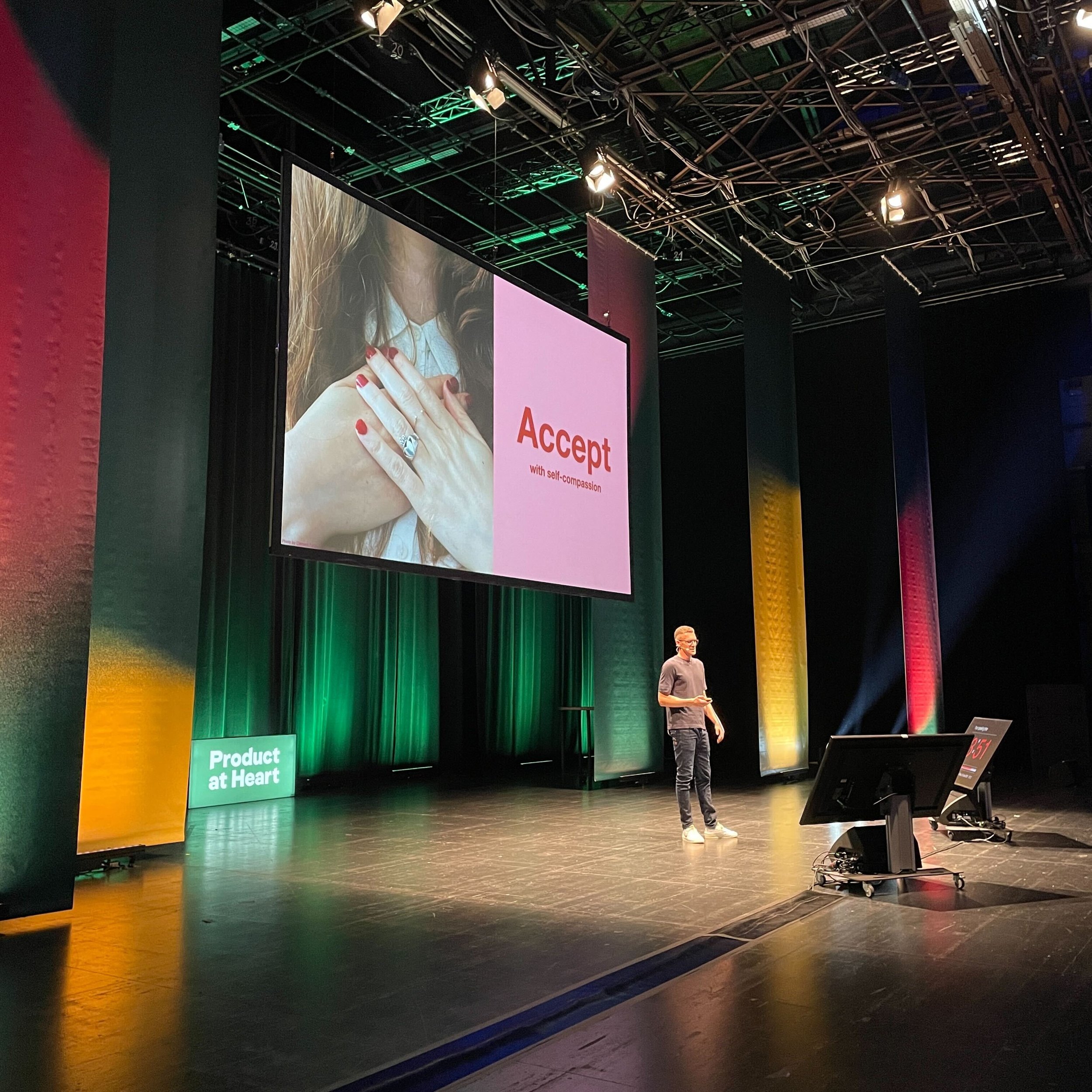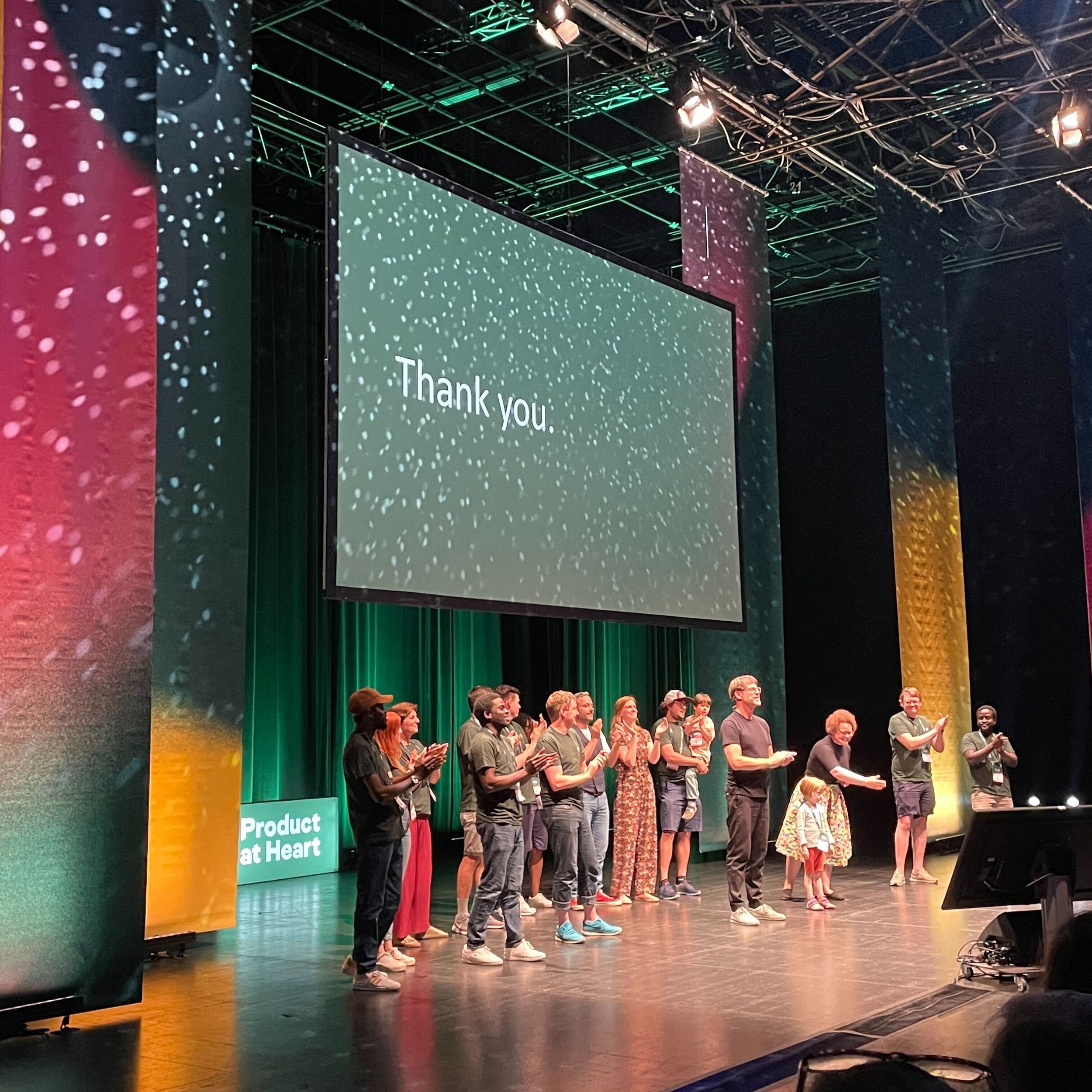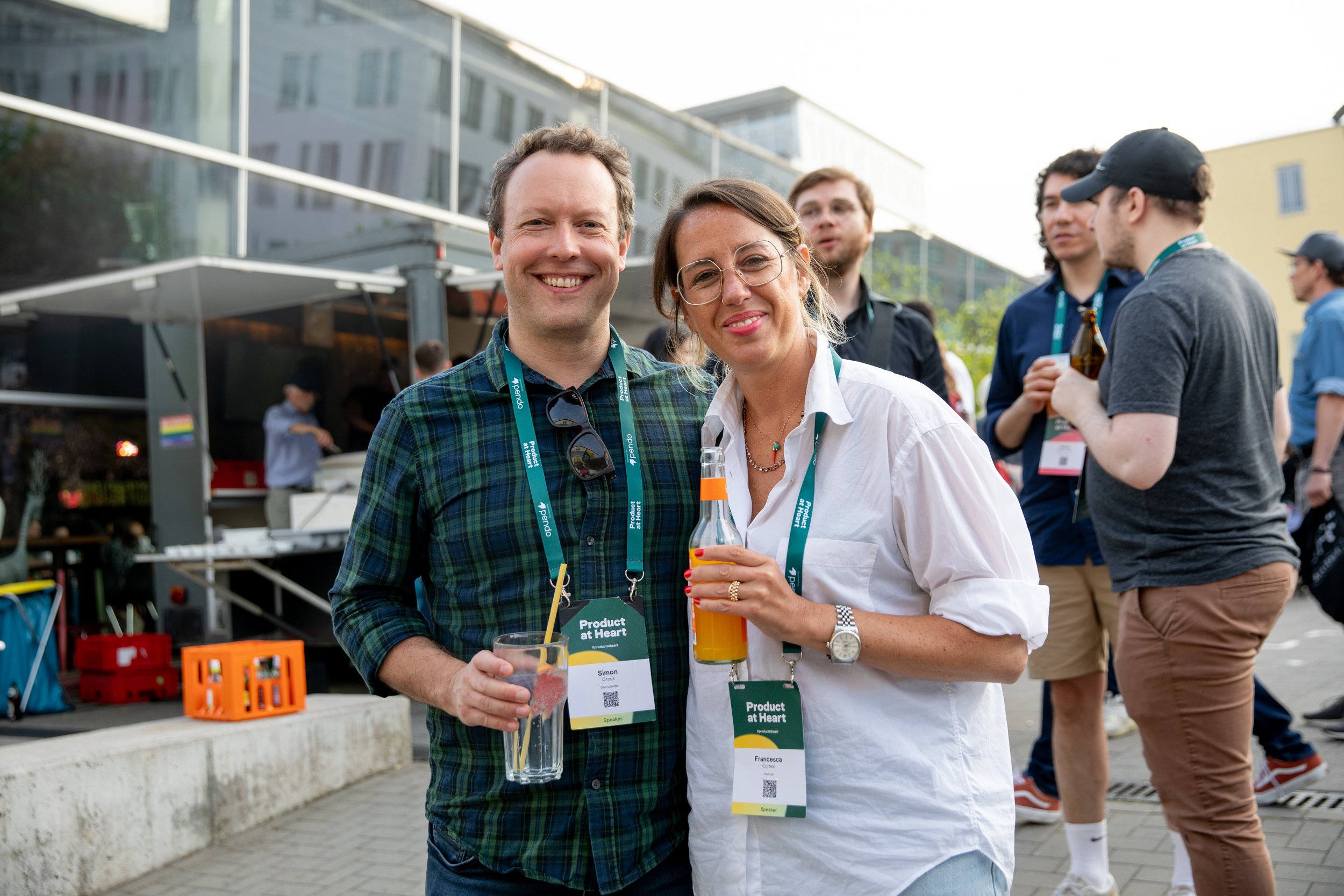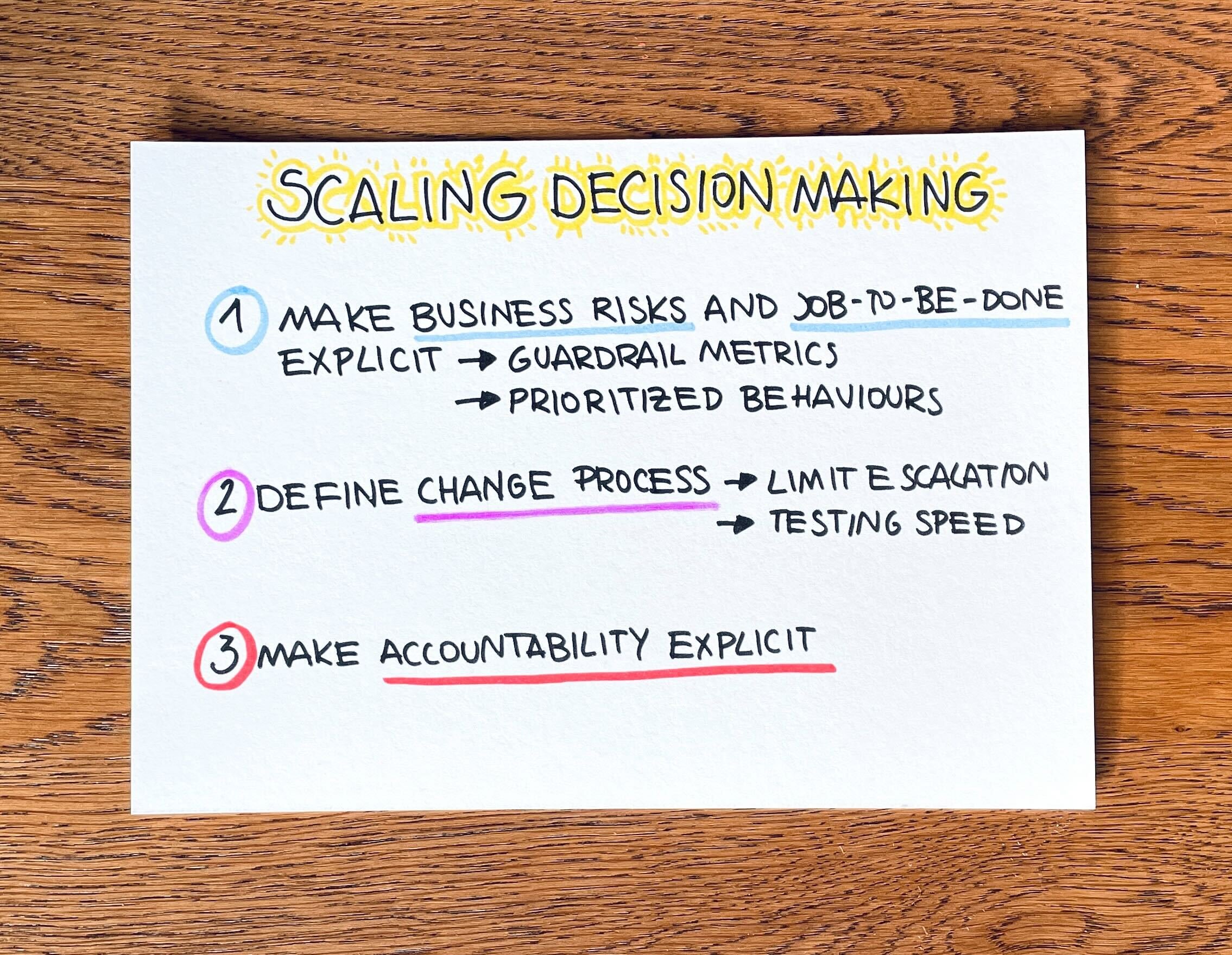3 lessons I take with me from Product at heart
Exactly one week ago I was stepping on the amazing yet terrifying stage of Product at Heart. Being there as a speaker has been one of the highlights of my year so far. But the conference gave me much more than the adrenaline rush of being on stage. I was more than anything an enthusiastic part of the audience, listening to the brilliant product minds that shared their stories. And I was a part of the community of curious product people who shared and mingled before, during, and after the conference.
Here are the lessons I take home with me from my amazing fellow speakers.
1.Actions over frameworks
Let’s be real, we are all swimming in frameworks. There is not a day that passes without seeing a new one popping up on Linked: in. And as much as frameworks are a fundamental part of the toolbox of any product manager and allow us to move forward no matter the situation, it was such a breath of fresh air to hear many speakers talking about action-oriented product development instead of introducing a new framework.
The tone was set by Teresa Torres who opened the conference not by sharing the fundamental of her hyper-famous method of continuous discovery, but giving concrete ideas on HOW to actually break through with continuous discovery in different organizations. Her main message was ”meet people where they are” - if you want to really change your organization you need to change people’s mindset by showing incremental changes. I loved Teresa’s talk that walked the audience through how to take action towards continuous discovery, no matter the org you work for.
“Meet people where they are is the golden rule of organizational change”
On the same note was the message of the second product guru on the stage. John Cutler advocated for habits over framework, and putting your focus on instilling in your team small actions that they can take every day, instead of overthinking the how. To make his point he had one of the most memorable quotes of the conference "Talking to customers is the going to the gym version of product management. Everyone says they do it, but only a few actually have experienced the real benefit of it”.
What I take with me is: focus on getting the actions out of your frameworks, and you’ll get far.
“Talking to customers is the going-to-the-gym version of product management. Everyone says they do it, but only a few actually have experienced the real benefit of it”
And I also loved Shaun Russell’s take on actions, not on an organizational, but on a personal level. Shaun talked about reframing self-doubt into something you can actually work with. He showed how you can transform the unconstructive attention coming from self-doubt into constructive attention: actionable and under the real of your control.
I will for sure think about his talk any time the little voice in my head says that ”I am not good enough” for something.
2. The power of reframing
Many times in my career I have experienced the power that can come from reframing a thought or a situation. Literally looking at things from another angle helped me break through challenges that felt really hard to overcome. This is why I was super happy when two of those reframing techniques came up on stage.
Alicia Shao talked about how we can all be futurists and embrace and shape the future. She talked about reframing how we imagine the future and instead of focusing on what we obviously do not know will happen, we can put our attention on what we for sure know will stay the same.
The underlying human need.
How we will solve those needs will change with the help of technology, but the need in itself will stay the same. To explain this concept she gave an example that I think I’ll never forget and start to use more and more often.
She started from the famous Harry Ford quote ” If I would have asked the customer what they wanted, they would have said faster horses”. If you apply Alicia’s reframing technique to this, you’ll soon understand that the question in itself is not the right one to ask. If Herry Ford would have framed the question from a customer needs’ perspective, he probably would have asked ” What is your primary need when going from A to B?” And to that question, at least some of the customers would have probably answered ” Getting there faster”. And that is exactly the solution he gave them.
On a similar note, Jeff Gothelf talked about how we measure product success in terms of business success, and how many times business metrics fail to capture what users would define as a success. It is not about revenues, but about meeting a need that will enable you to create a monetary return.
So instead of thinking about how much money can we generate with our product, and which features we need to get there, you can reframe it. The question to ask is: if you succeed, what will people do differently with your product? And how will you be able to capitalize on that?
I thought both reframing techniques were super useful and actionable and I will for sure add them to my toolbox.
3. The importance of self
One extremely refreshing perspective brought up at Product at Heart was the absolute transparency and honesty of the speakers discussing the ”dark side” of product management. Everyone working on product knows it is a lonely job, it is easy to feel stuck between user’s needs and constraints, days disappear in meetings and things to do, and no matter how much effort you put into it, you’ll never be enough as there is a new shiny framework popping up and that you know nothing about.
This is my constant feeling, especially when reading any of the books about product management: if all these expectations are on me, how will I ever feel successful?
Despite this being a really common and shared feeling, there was not a real discussion about it in the product community… until Product at Heart where the prime spot was given to the themes of self-awareness and self-acceptance.
My three takeaways:
If you do not create space for yourself to think, nothing will matter
We are all in the same boat, there is no shame in being open and frank about it
It always starts with you
The next conference dates are already been announced, save the date for the 11-13 of September 2024. If the conference will be as good as this year, you are in for a treat!

